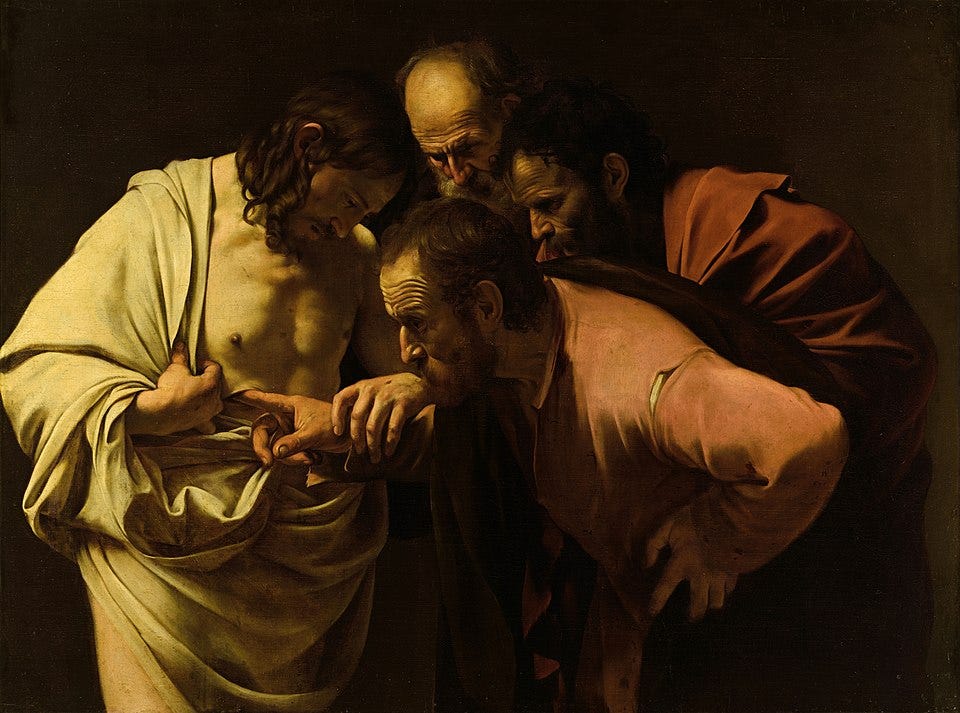"Reconciled in the Body of His Flesh"
Saturday, September 6th Readings Reflection: Saturday of the Twenty-second Week in Ordinary Time
For this reflection, I would like to focus on today’s Epistle, a short passage from St. Paul’s Letter to the Colossians. He begins by telling the Christians of Colossae that before their conversions, when they lived in sin, they were “alienated and enemies in mind in evil works” (Col 1:21 DRB). With these words, St. Paul demonstrates how sin wounds the sinner. St. Augustine writes about this in his City of God, where he explains that sin consists primarily in loving oneself even to the contempt of God. In other words, we sin by loving ourselves too much and choosing this excessive self love above and even against our love for God.
In the next verse of today’s Epistle, St. Paul tells the Colossians the source of their healing: “Yet now [Christ] hath reconciled in the [B]ody of [H]is flesh through death, to present you holy and unspotted, and blameless before [H]im” (Col 1:22). By Our Lord’s Passion, Death, and glorious Resurrection—in which His resurrected Body retains the wounds of His Crucifixion—we are healed of the wounds brought about by our sins. Through the Sacraments of the Dead (Baptism and Penance), we are washed clean in the Blood of the Lamb, flowing from His outstretched arms on the Cross, and healed of the brokenness brought about by sin.
St. Augustine elsewhere writes that in retaining the marks of His Crucifixion, Our Lord willed that the “wounds of [His Apostles’] hearts might be healed. What wounds? The wounds of unbelief” (Sermon 66 on the New Testament). This echoes what St. Paul says in the last verse of today’s Epistle, in which he calls the faithful of Colossae to “continue in the faith, grounded and settled, and immoveable from the hope of the gospel which you have heard” (Col 1:23). He does not want the Christians to fall back into their former sinful ways out of despair for their past sins and associated wounds.
This same message remains true for us today. As fallen beings, we have sinned, and we will continue to sin for the rest of our lives. We may struggle with habitual sin, and we may have even had the grave misfortune to fall into mortal sin. As grievous as these sins are, not one of them is greater than God’s mercy. No sin is too great nor number too many for God to forgive, as long as we are truly repentant. Once we have made a good Confession, we must trust that our sins are forgiven. We must perform penance for our past sins, yes, but we must entrust the past to God’s mercy rather than continuing to hold on to it and worry about our past sins.
As St. Padre Pio famously said: “My past, O Lord, to Your mercy; my present, to Your love, my future, to Your Providence.” May we make frequent use of the Sacrament of Confession, entrusting our past to the healing mercy of God Who restores all things in Himself, and may we allow ourselves to trust in the promise of His mercy in this sacrament so that we may live out our faith joyfully in the hope of eternal life.



Jesus, Mary and Joseph pray for us who have recourse to thee.
InCarne 🌐🕊️🔥🪽🩸
😌 To Jesus through Mary......
....Most Holy Theotokos save us! ⛪🔔
➕ IC XC Nika! ➕